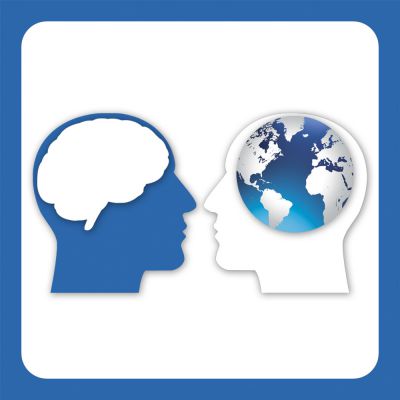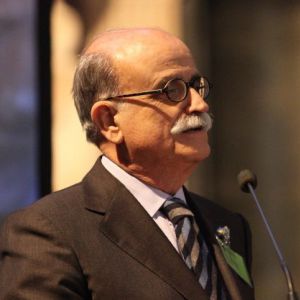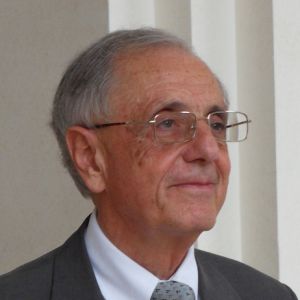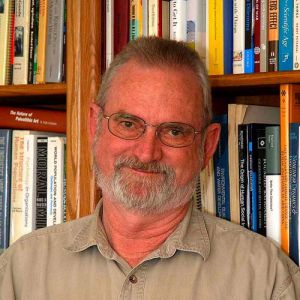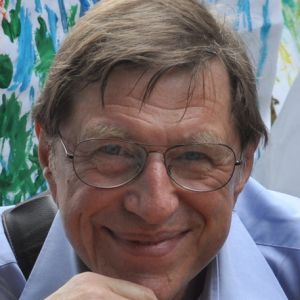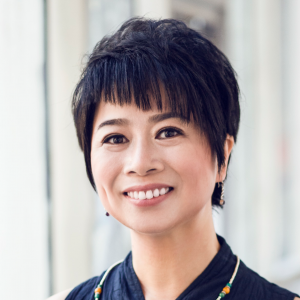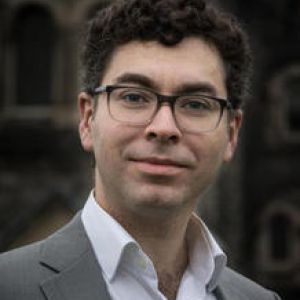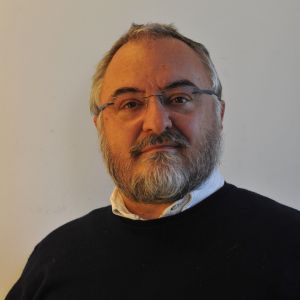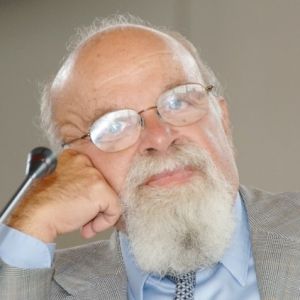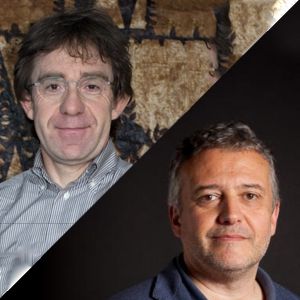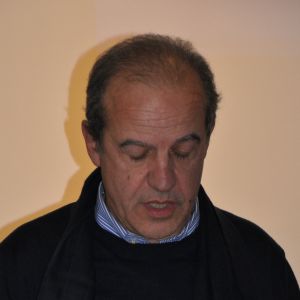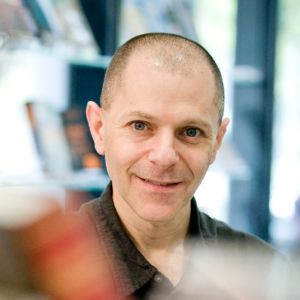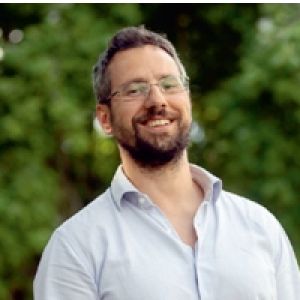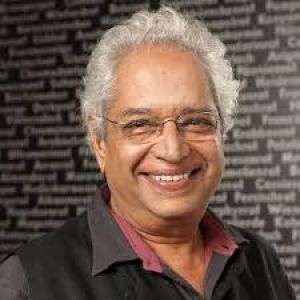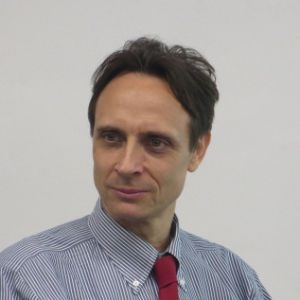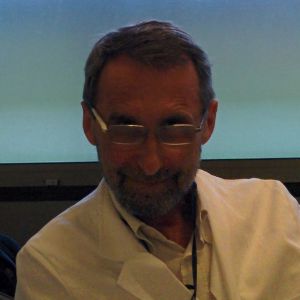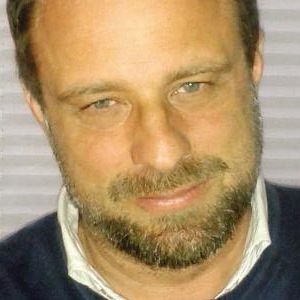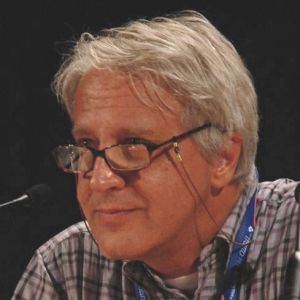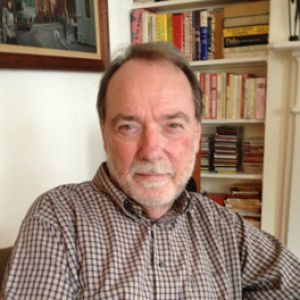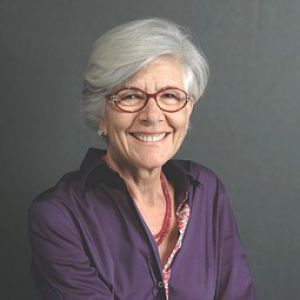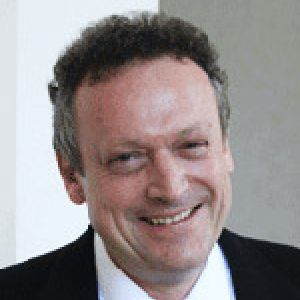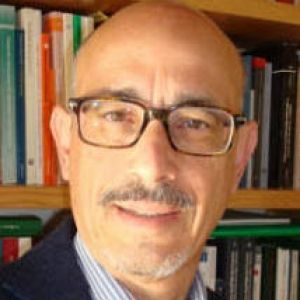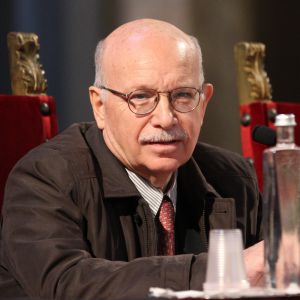Gli abstract pubblicati sono in inglese per i seminari che sono stati condotti in lingua inglese e in italiano per i seminari che sono stati condotti in lingua italiana.
Sessione inaugurale - 04-04-2019 - Pomeriggio
-
Biografia
Roberto Ruffino è Segretario Generale della Fondazione Intercultura.
Torinese, classe 1940, laureato in filosofia, Ruffino è uno dei maggiori esperti europei nel settore della comunicazione interculturale e dell’educazione internazionale. Il 21 Aprile 2008 ha ricevuto la Laurea Honoris Causa in Scienze dell'Educazione dall'Università di Padova, per gli oltre 40 anni di attività dedicati alla formazione interculturale.
Ruffino è considerato a livello internazionale tra i fondatori del filone culturale e scientifico dello scambio giovanile come occasione di formazione interculturale e di educazione alla mondialità. Collabora con diverse organizzazioni internazionali tra cui l'EFIL (la Federazione Europea per l'Apprendimento Interculturale) di cui è presidente onorario, la SIETAR (Society for Intercultural Education, Training and Research), e il Consiglio d'Europa.
All'Unione Europea ha presieduto la commissione di lavoro che nel 1976-78 portò alla creazione degli "scambi di giovani lavoratori" ed ha fatto parte del Comitato Scientifico del primo progetto pilota di scambi interculturali europei per studenti liceali (2007/2008) “Mobilità studentesca Individuale – Comenius”.
-
Biografia
Laureatosi con lode in medicina all'Università di Pisa nel 1961, allievo del Collegio Medico-Giuridico della Scuola Normale Superiore (attuale Scuola Superiore Sant'Anna), ha presto intrapreso la ricerca in neurofisiologia presso il CNR di Pisa, sotto la guida di Giuseppe Moruzzi, fino a diventare, nel 1980, direttore dell'Istituto di Neurofisiologia, che, dal 2001, ha assunto il nome di Dipartimento di Neuroscienze.
Dal 1988 al 2008 ha insegnato Neurobiologia presso la Scuola Normale, dirigendo anche il locale laboratorio. Ha svolto attività di ricerca e di insegnamento anche presso numerose università straniere, fra le quali la Eberhard-Karls-Universität Tübingen, la Cambridge University, il Massachusetts Institute of Technology, il Collège de France e l'Oxford University.
Oltre ad aver ricevuto molti premi e riconoscimenti, nazionali ed internazionali, il 10 giugno 2009 è stato eletto presidente dell'Accademia Nazionale dei Lincei, nomina approvata il 29 luglio dello stesso anno dal ministro per i Beni e le Attività Culturali Sandro Bondi. È membro, inoltre, dell'Accademia Europea e dell'American Academy of Arts and Sciences.
Le sue ricerche sono state principalmente indirizzate verso lo studio del sistema nervoso centrale, con particolare attenzione al sistema visivo dei mammiferi e dell'uomo, utilizzando innovative tecniche sperimentali e nuovi approcci teorici multidisciplinari, attingendo, fra le altre discipline, all'elettrofisiologia, alla psicofisica e alla biologia molecolare.
Tra i suoi risultati più significativi, si possono citare l'introduzione e l'uso di metodi elettrofisiologici per la diagnosi precoce delle patologie del sistema nervoso, la registrazione dell'attività elettrica prenatale, il ruolo delle neurotrofine nella plasticità e nello sviluppo del sistema nervoso. In ultimo, ha pure sperimentato nuovi metodi per riattivare la plasticità nel sistema nervoso nell'adulto e nell'anziano. Tali metodi hanno anche trovato proficua applicazione nella prevenzione della demenza senile e dell'Alzheimer (Train the Brain Program, in collaborazione fra CNR, Università e varie cliniche ospedaliere di Pisa).
Nel complesso della sua carriera, svolta interamente in Italia, ha prodotto oltre 280 pubblicazioni scientifiche, la maggior parte delle quali accolte dalle più importanti riviste specialistiche internazionali del settore.
È considerato uno dei maggiori esperti internazionali di neuroscienze.
Abstract
Mi propongo di discutere come un’immagine retinica, supponiamo l’opera di un artista famoso, abbia le interpretazioni più diverse a livello corteccia cerebrale, la quale le analizza con un cervello preparato, tramite il suo corredo genico unico e la sua esperienza individuale. Il giudizio di bello, come di interessante, può, molte volte, essere frutto solo di una modulazione culturale collettiva, estremamente potente nei tempi attuali. Come è il vedere di chi riacquista la vista? Le immagini parlano?
-
Not by Genes Alone: How Culture Transformed Human Evolution
Peter Richerson - University of California Davis
Biografia
Peter J. Richerson Is Distinguished Professor Emeritus in the Department of Environmental Science and Policy at the University of California—Davis. His research focuses on the processes of cultural evolution. His 1985 book with Robert Boyd, Culture and the Evolutionary Process, applied the mathematical tools used by organic evolutionists to study a number of basic problems in human cultural evolution. His later books with Boyd include Not By Genes Alone: How Culture Transformed Human Evolution, an introduction to cultural evolution aimed at a broad audience and The Origins and Evolution of Cultures, a compendium of their more important papers and book chapters. He has recently co-edited a book Cultural Evolution with Morten Christiansen reporting the results of a Strüngmann Forum. His recent publications used theoretical models to try to understand some of the main events in human evolution, such as the evolution of the advanced capacity for imitation (and hence cumulative cultural evolution) in humans, the origins of tribal and larger scale cooperation, and the origins of agriculture. He and his colleagues also investigate cultural evolution in laboratory microsocieties.
Abstract
Humans are unusual in learning an immense amount from each other—subsistence technologies, social behavior, language, and many forms of imaginative culture. Culture is something like the genetic inheritance system but it is also something like other systems of phenotypic flexibility like individual learning. Cultural evolution is more rapid than genetic evolution and most likely it originally evolved to adapt us to the extreme millennial and sub-millennial climate variation of the Pleistocene. Indeed, our biology has been extensively reorganized to exploit the cultural mode of adaptation, not least in the evolution of our very large, but very expensive, brain. At the evolutionary-functional level of analysis a Bayesian theory of how genes interact with culture and other modes of phenotypic flexibility is attractive. Genes, in effect, supply priors which learning and culture update based on information acquired in the present or relatively recent past. In the longer run, genetic priors are updated by natural and social selection. Recently, psychologists and neurobiologists have converged on an account for Bayesian updating works at the proximate-functional level. Genes guide the early development of the brain. In the case of the ancient sub-cortical parts of the brain that underpin our emotions and appetites precise hard wired instincts develop. Genes also guide the development of the gross anatomy of the cortex but the cortex remains extremely flexible and cognitive structures are built by learning, and, in humans, mostly by cultures. The appetites and emotions act as reinforcers, favoring cultural practices that satisfy our hunger, protect us from fearful experiences, satisfy our curiosity, result in healthy children, and the like. Our emotions and appetites have been subtly shaped culturally imposed social selection. For example, large cultural repertoires depend upon large societies so humans are more tolerant of strangers than other apes and engage in less aggressive dominance behaviors. We find the company of others more pleasurable and less stressful that other apes do.
-
Mind Meets Brain: The True Impact of Neuroscience on Philosophy
Martin Gessmann - Hochschule fur Gestaltung Offenbach am Main
Biografia
Martin Gessmann studied philosophy, German and French Literature at the Eberhard Karls University in Tübingen. He spent semesters abroad in Nantes (Western France) and Washington D.C. In Tübingen he received his doctorate in philosophy and habilitated in Heidelberg.
From 1991 to 1996 he used to be a television journalist for public television. In 2010 he was appointed professor at the Ruprecht-Karls-University of Heidelberg. Since 2011 he has been professor for cultural theories and aesthetics at the HfG Offenbach. He is co-editor of the journal Philosophische Rundschau.
In addition to monographs on the history of philosophy and textbooks on individual authors, Gessmann also deals with popular topics such as football. Accordingly, he is also active as a publicist. The latest non-fiction book published in collaboration with Hannah Monyer: The ingenious memory: How the brain makes our future out of the past. The book was edited by Knaus in 2015.
Abstract
There are two lessons to be learned: firstly, neuroscience has brought us further in the centuries-old issue 'mind or body'. The more we know about the actual processes in our brain, the more we can be sure that the question itself is already outdated. Neither can thinking be simply reduced to biochemical and electrical processes in the sense of a naturalization of the mind; nor are there still puzzles deep enough to suggest a perfect idealization of the spirit. Neural networks are proving too complex to simply validate one side or the other. From the outset, they emerged as instances in which body and mind already appear as mediated, and irreducibly so. The qualms of analytic philosophy concerning ‘mind and body’ have become phantom pains in the meantime.
Secondly continental philosophy ought to acknowledge a shortcoming. The brain was often regarded as the mental control center of human behaviour. In this function, an analogy to the state and its administration as well as its economy was promising. The corresponding models were ultimately based on a kind of system philosophy as developed in structuralism some 50 years ago. In light of the insights of neuroscience, we must now realize that these models were conceived far too simply. The forms of administration and economics in our heads are much more ingeniously knitted and finely branched than the analogy to the community would allow for. The networking starts already at the grass roots, i.e. at each individual synapse.
What we need is a change of mind, not only in philosophy. The new insights generated by neurosciences could also change the image we form of our modern societies. Once we understand how neural networks reach out to the most remote corners of the brain, it may also be possible to understand how our new network culture is capable of creating completely new forms of economic activity and self-government. The neurosciences would then show in the analysis of the mental microcosm what what we might face in the social macrocosm. -
There is no blank slate. The role of genes, neurons, behaviour and geography in the reshaping of cultures
Mai Nguyen-Phuong-Mai - Amsterdam School of International Business, Amsterdam University of Applied Sciences
Biografia
Dr. Mai Nguyen-Phuong-Mai (or Mai Nguyen) is Associate Professor at Amsterdam School of International Business (AMSIB). Her research interests include Cross-cultural management, Diversity/Bias Management, and Change Management.
In the last few years, she has taken interest in cultural neurosciences. In May 2017, she published a book with the title: Intercultural Communication – An Interdisciplinary Approach: When Neurons, Genes, and Evolution Joined the Discourse. This is the first text book in the field of Intercultural Communication (IC) that incorporates insight from newly emerging disciplines. It challenges the dominant school of Hofstede and the like, advocating for a shifting paradigm, from seeing culture as static to seeing culture dynamic. Her up-and-coming book with Routledge is due in 2019, which is also another effort to review and refine the field of cross-cultural management with insight from neuroscience. At the moment, she is working on an MSc degree on Applied Neuroscience at King's College - one of the world's top institute in the field of neurobiology.
Dr. Mai Nguyen-Phuong-Mai started her career as a journalist with training and fellowships at World Press Institute (USA), BBC (Thailand) and Reuter (UK). She now freelances for different media outlets including BBC, Islamic Monthly and Your Middle East. She spent most of 2012 in the midst of the Arab Spring, following the historical route of Islam from where it began, city by city, to the West and to the East. On the business side, Dr. Mai Nguyen-Phuong-Mai runs her own training agency Culture Move and designs tailor-made programs for universities and companies. She co-designed various business simulation tools including Cultural Detective® and Diversophy® which are frequently used in corporate training programs. Since 2015, she also coaches diverse governmental bodies on Radicalization. She communicates as a public figure here.
Abstract
The field of intercultural studies has been strongly dominated by a static paradigm of culture. It posits that culture is static. We learn the values and nurture shapes who we are. Hofstede – a major theorist of the field – is famous for his analogy that culture is the “software of the mind”. This metaphor reinforces the idea of blank slate – a fundamental bedrock of behaviorism. It also implies that individuals are born ready to be “installed” with a cultural software.
Taking an interdisciplinary approach, we will explore the notion that culture has a dynamic relationship with biology. Discussing culture without discussing the link with biology may oversimplify the evolutionary role of culture. This relationship manifests itself in the way culture has evolved to be a survival strategy for human beings. Culture is not a “superorganic” as Durkeheim – the founder of sociology – assumed. It does not float in its own universe, waiting to impose its power on human beings.
In sum, culture is not only (1) socially learned, but also (2) geographically influenced; (3) genetically inherited; and (4) neurally enabled. In this presentation, we will explore these ideas, and discuss the potential of new directions in theories and practices as a result of this new way of looking at culture.
Tavola rotonda serale: “Culture, Cognition, and Consciousness” - 04-04-2019 - Pomeriggio
-
Biografia
Milton J. Bennett, Ph.D. is an interculturalist with a background in physics, psycholinguistics, and communication theory. He directs the Intercultural Development Research Institute, which supports constructivist research and applications to education, corporate, and social sectors. He is the author of Basic Concepts of Intercultural Communication: Paradigms, Principles, & Practices and most recently has been writing on the topic of intercultural consciousness.
-
Biografia
Ying-yi Hong is currently a professor at the business school of Chinese University of Hong Kong (CUHK). She received her PhD from Columbia University in the field of personality and social psychology. Over the past twenty some years, she has taught at the Hong Kong University of Science and Technology, the University of Illinois at Urbana-Champaign, and Nanyang Technological University in Singapore, before returning to teach at CUHK.
Hong’s research interests include culture and cognition, identity and intergroup relations. She believes in interdisciplinary research, and seeks to integrate social psychology, behavioral economics, neuroscience, and genetics to study identity and intergroup dynamics. This integration hopefully will bring new understanding of how culture, identity, and human biology co-evolve, thereby shedding light on the development of humankind in the face of globalization and multicultural exposure.
She has edited over ten books, including The Oxford Handbook of Multicultural Identity, which won the 2015 Ursula Gielen Global Psychology Book Award. Prof Hong has published over 150 journal articles and book chapters and her work has been extensively cited in psychology, education, management, marketing, and global studies. She has received several awards for her pioneering work, including the Otto Klineberg Intercultural and International Relations Award in 2001, the International Society for Self and Identity Outstanding Early Career Award in 2004 and the Nanyang Award for Research Excellence in 2013. Prof Hong was elected Fellow of the Association for Psychological Science and the Society of Experimental Social Psychology. For eight years, she has collaborated with the Chinese Academy of Social Sciences to offer voluntary research development training to Chinese social scientists in Mainland China, Hong Kong, Taiwan, Europe and Australia.
Read more about Hong’s Culture Lab at http://www.yingyihong.org/.
-
Biografia
Roberto Ruffino è Segretario Generale della Fondazione Intercultura.
Torinese, classe 1940, laureato in filosofia, Ruffino è uno dei maggiori esperti europei nel settore della comunicazione interculturale e dell’educazione internazionale. Il 21 Aprile 2008 ha ricevuto la Laurea Honoris Causa in Scienze dell'Educazione dall'Università di Padova, per gli oltre 40 anni di attività dedicati alla formazione interculturale.
Ruffino è considerato a livello internazionale tra i fondatori del filone culturale e scientifico dello scambio giovanile come occasione di formazione interculturale e di educazione alla mondialità. Collabora con diverse organizzazioni internazionali tra cui l'EFIL (la Federazione Europea per l'Apprendimento Interculturale) di cui è presidente onorario, la SIETAR (Society for Intercultural Education, Training and Research), e il Consiglio d'Europa.
All'Unione Europea ha presieduto la commissione di lavoro che nel 1976-78 portò alla creazione degli "scambi di giovani lavoratori" ed ha fatto parte del Comitato Scientifico del primo progetto pilota di scambi interculturali europei per studenti liceali (2007/2008) “Mobilità studentesca Individuale – Comenius”.
Sessione 1: "Siamo tutti esseri umani" - 05-04-2019 - Mattina
-
Biografia
Lilach Sagiv is a professor at the School of Business Administration, at the Hebrew University of Jerusalem. She received her Ph.D. from the Hebrew University of Jerusalem. She then spent a post-doctoral year at the Psychology Department at the University of Michigan, where she also spent sabbaticals as a visiting professor in 2005 and 2011. She served as an Associate Dean for Teaching at the School of Business Administration of the Hebrew University (2008-2010; 2013-2016) and is currently the Chair of the University Appointment and Tenure Committee in the Non-Experimental Sciences. She also served as an associate editor at the European Journal of Social Psychology (2015-2017) and is serving on the editorial board of the Journal of International Business Studies and the Journal of Cross Cultural Psychology. Her research interests focus on the impact of personal, professional and cultural level values on organizations and their members. She is investigating the mechanisms that link values to behavior and the nature of identification with groups and organizations. Her work has been published in leading journals such as the Journal of Personality and Social Psychology, Psychological Science, Journal of Personality, Strategic Management Journal, Personality and Social Psychology Review, and Journal of Experimental Psychology: General.
Abstract
How do cultures affect individuals? This workshop will discuss the commonalities and differences in human values within and across cultures. Values refer to what is good, desirable and worthy. They represent broad, basic motivational goals that individuals pursue and that social-collectives encourage their members to pursue. They serve as guiding principles in people's lives, directing their thoughts, feelings, preferences and actions. In the workshop we will discuss the Schwartz's values project, that has empirically investigated values of individuals across cultures all over the world. The findings indicate that, across cultures, individuals assign the same meaning to values, organizing them in two main conflicts: an emphasis on openness to change versus conservation, and an emphasis on self-enhancement versus concern for others. Whereas people vary substantially in the importance they attribute to different values there are also universals in value emphases, and commonalities in the multiple ways through which values are translated into thought and action. Reviewing some of the findings from three decades of research, the workshop will discuss universals in human values across cultures and speculate about their implications for the understanding of the culture-brain relationships.
-
Biografia
Igor Grossmann is a social-cognitive scientist exploring the interplay of sociocultural factors for wisdom in the face of daily stressors. His work utilizes innovative methods at the intersection of big data analytics, psychophysiology, diary surveys, and behavioural experiments. Grossmann studied at the University of Freiburg and at the University of Michigan, where he received his Ph.D. in 2012. He is currently an Associate Professor of Psychology at the University of Waterloo, Canada. His work has been published in such outlets as Proceedings of the Royal Academy: B, Perspectives on Psychological Science, Psychological Science, PNAS, Journal of Experimental Psychology, Journal of Personality and Social Psychology, and Emotion. His contributions have been recognized through numerous awards (e.g., SAGE Young Scholar award from the Society for Personality and Social Psychology, Rising Star Award from the Association for Psychological Science, APA Dissertation Award, USERN Prize for Social Sciences). Currently, Grossmann is an Associate Editor of the journal Emotion, and co-hosts the “On Wisdom Podcast,” aiming to disseminate scientific insights from psychology, philosophy and cognitive sciences to the broad academic audience and the general public.
Abstract
Even though IQ has been increasing in the 20th century, we experience a proliferation of ultra-nationalist movements in various parts of the globe, tribalism, and denial of science in many parts of the globe. To face global challenges, one requires to go beyond IQ -- a set of abstract cognitive abilities. Instead, social critiques suggest we should focus on wisdom -- an ability to flexibility navigate complex ill-defined problems. Pertinent to the gene and culture discussion, cultures differ in their views of intelligence and wisdom as stable, genetically-determined traits. New empirical research on wisdom demonstrates systematic variability of its central characteristics as a function of situational demands, cultural factors and induced mindsets. Overall, the long-standing view of intelligence and wisdom as chiefly genetically determined traits, with little influence of family environments and cultures appears wrong. These insights pave path to evidence-based interventions promoting greater wisdom in the context of interpersonal uncertainties and political conflicts.
-
Biografia
Andrea Moro è un linguista, neuroscienziato e scrittore italiano.
È professore ordinario di linguistica generale presso la Scuola Universitaria Superiore (IUSS) di Pavia dove svolge il ruolo di Rettore Vicario e di responsabile dell'Area delle Scienze Cognitive, Comportamentali e Sociali. Allo IUSS ha fondato e diretto per sei anni il Centro di ricerca in Neuroscienze, Epistemologia e Sintassi Teorica NeTS. Studia la teoria della sintassi delle lingue umane e il rapporto tra linguaggio e cervello. È stato per un decennio ordinario presso l’Università Vita-Salute San Raffaele dopo essere stato associato presso l’Università di Bologna. Varie volte visiting scientist presso il MIT e la Harvard University, ha tenuto corsi e seminari in Europa e negli Stati Uniti. Laureato a Pavia in lettere classiche, studente Fulbright negli Stati Uniti, ha conseguito il dottorato di ricerca in Linguistica presso il consorzio di Padova e il "Diplôme d'études supérieures en théorie de la syntaxe et syntaxe comparative" presso l’Université de Genève. Al San Raffaele di Milano è stato tra i fondatori del Dipartimento di Scienze Cognitive nel 1993, membro del comitato ordinatore della facoltà di psicologia e di filosofia del nascente Ateneo e presidente del corso di laurea interfacoltà in neuroscienze cognitive fino al 2010. È stato vicepresidente del Comitato Esperti per la Programmazione della Ricerca (CEPR) diretto dal Ministro dell'Istruzione, Università e Ricerca Scientifica. Studia la sintassi delle lingue umane.
Abstract
Una delle maggiori scoperte della linguistica contemporanea è che le lingue non possono variare indefinitamente: ogni grammatica deve sottostare a principi generali che generano un numero immenso ma non infinito di combinazioni possibili. Da dove nascono i confini di Babele? Verificando tramite tecniche di neuroimmagini l'acquisizione di grammatiche artificiali che violano i principi generali è stato possibile giungere a capire che questi limiti dipendono dalla struttura neurobiologica del cervello e non sono convenzioni culturali di natura arbitraria. Accanto al problema di quali circuiti neuronali si attivano per il linguaggio verrà affrontato il problema di come decifrare il codice elettrico che i neuroni utilizzano per comunicare informazioni linguistiche: confrontando le onde acustiche con le corrispondenti onde elettriche si è arrivati ad individuare un modo nuovo per affrontare la decifrazione di questo codice interno. La ricerca dei confini di Babele porta nuovi dati e nuove domande sulla natura speciale degli esseri umani.
-
Biografia
Professore Emerito di Genetica Umana nella Scuola di Medicina, Dipartimento di Scienze Mediche dell’Università di Torino, è stato Presidente dal 2016 al 2018 della Accademia delle Scienze di Torino e dal 2009 al 2017 della “Human Genetics Foundation (www.hugef-torino.org)”, un Ente di ricerca con sede a Torino fondato nel 2009 dalla Fondazione Compagnia di San Paolo in compartecipazione con l’Università ed il Politecnico di Torino, che ha raccolto una media di 60-70 ricercatori nel campo della genetica umana e medica.
Dal 1981 al 2004 è stato Visiting Professor of Genetics al Genetics Department della Stanford University Medical School a Stanford, California, USA. I suoi contributi allo studio dell’evoluzione dell’uomo e delle popolazioni umane sotto il profilo sia della storia biologica sia della storia culturale, hanno permesso di tracciare una storia ed una geografia dei geni umani descritta nel volume “The History and Geography of Human Genes” in collaborazione con Luigi Luca Cavalli-Sforza e Paolo Menozzi (Princeton University Press) internazionalmente riconosciuto come un riferimento indispensabile per la genetica umana, dove viene definitivamente dimostrata l’origine africana della nostra specie ed illustrata la memoria genetica delle popolazioni attuali nel “ricordare” migrazioni preistoriche, in particolari europee, per le quali mancano fonti documentarie. È autore di altri 2 volumi e di 244 pubblicazioni su riviste internazionali i cui riferimenti si trovano sul sito: https://iris.unito.it/browse?type=author&order=ASC&rpp=20&authority=rp19859#.WtZu4YhuY2w
Abstract
1. I 25000 geni della nostra specie registrano un passato di circa 150,000 anni. La “memoria genetica” di uno di noi consiste nel DNA ereditato dai suoi genitori. Poiché i geni variano lentamente di generazione in generazione, è possibile ripercorrerne la storia e conservarne oggi la traccia nell’esame del DNA.
2. Un esempio di conservazione della memoria genetica verrà esposto riportando le ricerche sul DNA di campioni della popolazione italiana, sottolineandone la stratificazione soprattutto in termini di migrazioni.
3. Se la memoria genetica può essere utilizzata per documentare il passato, è anche in grado di conservarsi nell’arco della vita del singolo individuo ? La confusione tra rischio e certezza lascia erroneamente intendere che la storia passata e futura dell’individuo risieda tutta nel suo genoma. Oggi le osservazioni a livello molecolare mettono in luce l’esistenza di un sistema di informazioni costituito da una rete di segnali cellulari che controllano l’espressione dei geni. Non solo: la constatazione che il numero dei geni nell’uomo (circa 25000) sia pressoché uguale a quello del topo evidenzia che l’evoluzione funzionale degli organismi risulti più dalla differenziazione combinatoria di reti di proteine di regolazione (denominata “regolazione epigenetica”) che dal numero di geni. Tali reti non sarebbero infatti regolate dalle sequenze di DNA: regolazione genica e circuiti neuronali più o meno complessi contribuirebbero a tracciare una memoria proiettata sul futuro, cioè a lungo termine.
4. Un esempio di tale meccanismo “epigenetico” verrà illustrato esaminando il senso dell’olfatto. -
Biografia
Mark Pagel is a Fellow of the Royal Society and Professor of Evolutionary Biology at Reading University in the UK. He is best known for his work on building statistical models to examine the evolutionary processes imprinted in animal and human behavior, from genomics to the emergence of complex systems, including language and culture. He is the Editor-in-Chief of the award winning Oxford Encyclopedia of Evolution and co-author of The Comparative Method in Evolutionary Biology which is regarded as a classic in the field. He is widely published in Nature and Science. His book Wired for Culture: Origins of the Human Social Mind was published in early 2012.
Abstract
Humans have social and cognitive skills not seen in other primates, including our close genetic cousins the Chimpanzees. We have language, a ‘theory of mind’ or a sense of knowing what others know, our technologies accumulate, we engage in trading and specialization and we have morality. I suggest that all of these capabilities – and thus our social mind – have their origin in our ability to copy others’ behaviours and actions merely by watching and without the need for specific training or rewards. No other species has this ability, and I call it “visual theft” because it means that you can take advantage of someone else’s best ideas without having to develop them yourself. Once individuals of a species have the capacity for visual theft, they need to develop the social skills to cooperate, to trade, to negotiate and to specialize at what they do best. These actions depend strongly on language and morality. Without these social skills to defuse ‘visual theft’ our early tribal societies would have collapsed under the weight of suspicion and mis-trust. I suggest that language and our social mind arose sometime around the origin of our species, perhaps 200,000 years ago.
-
Nature e Culture: l'irriducibile pluralità dell'umano
Adriano Favole - Università degli Studi di Torino e Stefano Allovio - Università Statale di Milano
Biografia
Adriano Favole è Professore Ordinario e Vice Direttore per la Ricerca presso il Dipartimento di Culture, Politica e Società e insegna Antropologia culturale e Cultura e potere all’Università di Torino. Ha insegnato presso le Università di Milano, Genova e Bologna e in Nuova Caledonia. Ha viaggiato e compiuto ricerche a Futuna (Polinesia occidentale), in Nuova Caledonia, a Vanuatu, in Australia, a La Rèunion (Oceano indiano) e in Guyana Francese. I suoi ambiti di ricerca principali sono l’antropologia politica, l’antropologia del corpo e l’antropologia del patrimonio. E' specialista dell'Oceania e degli oltremare europei. Collabora con La lettura del Corriere della Sera. È autore di: La palma del potere (Il Segnalibro, 2000); Isole nella corrente (La ricerca folklorica, Grafo, 2007); Resti di umanità. Vita sociale del corpo dopo la morte (2003); Oceania. Isole di creatività culturale (2010), La bussola dell’antropologo (2015) per Editori Laterza; Vie di fuga. Otto passi per uscire dalla propria cultura (UTET, Dialoghi sull’uomo, 2018).Stefano Allovio è professore ordinario di Antropologia culturale all’Università di Milano Statale dove insegna Antropologia sociale e Antropologia culturale. È vice presidente della Società Italiana di Antropologia culturale (SIAC) e socio dell’European Association of Social Anthropologist (EASA). Ha condotto molteplici indagini etnografiche in Africa (Burundi, Repubblica Democratica del Congo e Sudafrica) e nelle Alpi occidentali. Fra le sue pubblicazioni si annoverano i seguenti volumi: Burundi. Etnie, identità e potere nella storia di un antico regno, Torino, Il Segnalibro, 1997; La foresta di alleanze. Popoli e riti in Africa equatoriale, Roma-Bari, Laterza, 1999; Culture in transito. Trasformazioni, performance e migrazioni nell’Africa sub-sahariana, Milano, Franco Angeli, 2002; Culture e congiunture. Saggi di etnografia e storia mangbetu, Milano, Guerini e Associati, 2006; Pigmei, europei e altri selvaggi, Roma-Bari, Laterza, 2010; Riti di iniziazione. Antropologi, stoici e finti immortali, Milano, Raffaello Cortina, 2015.
Abstract
Nonostante la globalizzazione e le forze che spingono all'uniformazione del mondo, le etnografie continuano a proporci una condizione umana caratterizzata da pluralità, creatività, immaginazione. Le recenti ricerche sul "prospettivismo" delle popolazioni amerindiane e melanesiane, per esempio, ci restituiscono concezioni native delle culture e delle nature che arricchiscono il dibattito sulle forme dell'umano e sulle sue relazioni con l'ambiente. E' anche vero, tuttavia, che questa pluralità si innesta su una inesauribile capacità di condivisione che è, anch'essa, una caratteristica della condizione umana. Non siamo tabula rasa, ma neppure esseri dalle prevedibili trasformazioni . L'universalità - questa la proposta forte del nostro intervento - sta piuttosto nelle capacità di condivisione delle culture. Convivere e condividere la pluralità è forse la ricetta per non cadere né nel relativismo culturale e neppure in forme di neo-universalismo di tipo unilaterale.
Sessione 2: "Inconscio e culture" - 05-04-2019 - Mattina
-
Biografia
Shinobu Kitayama is Robert B. Zajonc Collegiate Professor of Psychology at the University of Michigan. He received his B.A. and M.A. from Kyoto University, Japan, and his Ph.D. from the University of Michigan and taught at the University of Oregon and Kyoto University before joining the Michigan faculty in 2003. He studies psychological diversity across cultures with multiple methods including behavioral experimentation, neuroscience, and genetics and epigenetics. Over the last decade, he has pioneered the field of cultural neuroscience and investigated how “nature” may be “nurtured.” Previously, Editor of Personality and Social Psychological Bulletin, he is currently serving as Editor-in-chief of Journal of Personality and Social Psychology: Attitudes and Social Cognition. His honors include Fulbright Fellowship, Guggenheim Fellowship, Society of Experimental Social Psychology Scientific Impact Award, and Society of Personality and Social Psychology Career Contribution Award. He is an elected member of the American Academy of Arts and Sciences and a fellow of the Association of Psychological Science.
Abstract
Culture is to humans as water is to fish. This epithet illustrates the possibility that much of the influence of culture on humans is implicit and, by extension, mostly unconscious. At the same time, it is also clear that certain core values of culture, including individualism and collectivism, are consciously upheld and used to guide each’s behavior. In this workshop, I will address how these two views can be integrated into a coherent model of cultural acquisition. The model holds that culture is composed of various scripted behavioral patterns designed to achieve certain core values (called “cultural tasks”) 1,2. As people grow up, they develop a consciously held identity by adopting a relevant cultural value and, by so doing, select some subset of the relevant cultural tasks and repeatedly engage in them. Through this process, individuals gradually establish neural pathways that are optimally attuned to carry out the selected cultural tasks, and their brains undergo plastic re-wiring and re-shaping 3,4. These culturally mediated neural changes are thought to enable each to perform his or her cultural tasks automatically and even unconsciously, outside of conscious awareness, which in turn provides a basis for both social and biological adaptation. Recent evidence for the plastic change of brain structure through participation in culture 5,6 will be reviewed, and directions for future work will be discussed.
-
Biografia
Romano Màdera è stato professore ordinario di Filosofia Morale e di Pratiche Filosofiche presso l'Università degli Studi di Milano Bicocca dopo aver insegnato all'Università della Calabria e all'Università Ca' Foscari di Venezia.
Fa parte delle associazioni di psicologia analitica AIPA ( italiana) e IAAP ( internazionale), del Laboratorio Analitico delle Immagini ( LAI, associazione per lo studio del gioco della sabbia nella pratica analitica ) e della redazione della Rivista di Psicologia Analitica.
E’ uno dei fondatori dei Seminari Aperti di Pratiche Filosofiche e della Scuola Superiore di Pratiche Filosofiche “Philo”. Ha chiamato la sua proposta nel campo della ricerca e della cura del senso “analisi biografica a orientamento filosofico” formando la società degli analisti filosofi ( SABOF ).
Tra le sue pubblicazioni: Identità e feticismo (1977, nuova edizione ampliata con il titolo Sconfitta e utopia 2018); Dio il Mondo (1989), L'alchimia ribelle (1997); C: G. Jung. Biografia e teoria (1988); L'animale visionario (1999); La filosofia come stile di vita ( con L. V.Tarca, 2003); Il nudo piacere di vivere (2006), La carta del senso. Psicologia del profondo e vita filosofica (2012), Una filosofia per l’anima. All’incrocio di psicologia analitica e pratiche filosofiche ,a cura di C. Mirabelli (2013), C. G. Jung. L'Opera al Rosso, Feltrinelli, Milano, 2016.
Abstract
La pseudospeciazione, teorizzata dall'etologia umana, può costituire una base per affrontare l'uso culturale delle costruzioni del "capro espiatorio" come condizionamento dei comportamenti collettivi alla base del superamento metodico delle inibizioni che limitano a certe situazioni o proibiscono del tutto di distruggere membri della stessa specie tra mammiferi. Le tecniche di mostrificazione tendono a trasformare la percezione dell'altro in qualcosa di estraneo così minaccioso e svalutato da poterlo sopprimere. Ma con ciò si produce una sorta di moral injury che riguarda tanto le vittime che i carnefici. Questo nesso sembra essere decisivo per costituire un campo transdiciplinare che colleghi gli apporti delle scienze biologiche, dell'etologia e delle neuroscienze alle scienze sociali e umane, alla psicologia e alla dimensione etica e politica.
-
Biografia
Neil Levy is a professor of philosophy at Macquarie University, Sydney, and a Senior Research Fellow at the Oxford Uehiro Centre for Practical Ethics, University of Oxford. He is a wide-ranging philosopher, who has published extensively on issues in free will, philosophy of mind and applied ethics, among other topics. He is the author of seven books, including Neuroethics: Challenges for the 21st Century (Cambridge University Press) and Consicousness and Moral Responsibility (Oxford University Press).
Abstract
What kind of animals are we? That question is at the heart of psychology and philosophy. One view is that we are an animal shaped by evolution to live in a stone age environment, and that we come to the world with a mind that 'expects' that environment. On that view, many of our problems stem from a mismatch between our minds and our space age world. For example, we are depressed because we are built to live in small groups, comparing ourselves to very few other people, but we live in global world where we compare ourselves to celebrities and sports stars. I will put forward an alternative picture of the kind of animal we are: a deeply social animal. Rather than having minds that expect a stone age environment, we have minds that are attuned (by evolution) to whatever the local ways of doing things happen to be. On this view of the kind of animal we are, we are not doomed to be out of step with our environment: we are instead creatures of our environment.
-
Biografia
Fausto Caruana è Neuroscienziato presso l’Istituto di Neuroscienze del CNR di Parma. I suoi interessi riguardano le neuroscienze cognitive sociali ed affettive, con una particolare attenzione allo studio delle funzioni cognitive del sistema motorio, e lo studio delle espressioni emozionali. Collabora con la Chirurgia dell’Epilessia dell’Ospedale Niguarda di Milano. Ha scritto “Il Cervello in Azione” (con A. Borghi, ed. Il Mulino) e “Come funzionano le Emozioni. Da Darwin alle Neuroscienze” (con M. Viola, ed. Il Mulino).
Abstract
Nel 1872 Darwin gettò le basi per uno studio naturalistico delle espressioni emozionali. Successivamente, il progetto Darwiniano è stato oggetto di due principali considerazioni. La prima, mossa originariamente dai pragmatisti americani, è volta a criticare l’idea secondo la quale l’espressione delle emozioni è qualcosa di cronologicamente successivo all’esperienza emozionale, suggerendo invece una compenetrazione profonda tra espressione ed esperienza. La seconda, più recente, è volta mostrare come l’espressione delle emozioni non ha la funzione comunicare il proprio stato emozionale, ma piuttosto di regolare le relazioni tra individui. Nel corso della presentazioni, si mostrerà come queste considerazioni sono non sono incompatibili, ma anche supportate dai risultati delle neuroscienze contemporanee. Si discuteranno i recenti risultati ottenuti mediante la stimolazione elettrica su pazienti, ed il ruolo giocato dal meccanismo mirror della comunicazione e nella comprensione delle espressioni emozionali.
-
Biografia
Sudhir Kakar is a psychoanalyst, novelist, and a scholar in the fields of cultural psychology and the psychology of religion. He has been Lecturer at Harvard University, Senior Fellow at the Centre for Study of World Religions at Harvard (2001-02), and Visiting Professor at the universities of Chicago(1989-92), McGill, Melbourne, Hawaii and Vienna.
Kakar has been a Fellow at the Institute of Advanced Study, Princeton, Wissenschaftskolleg, Berlin and the Centre for Advanced Study of Humanities, Cologne. His many honours include the Bhabha, Nehru and ICSSR National Fellowships of India, Kardiner Award of Columbia University, Boyer Prize for Psychological Anthropology of the American Anthropological Association, Germany’s Goethe Medal, Rockefeller Residency, McArthur Research Fellowship, and the Order of Merit of the Federal Republic of Germany.
Kakar is the author of eighteen books of non-fiction and six of fiction. His books have been translated into twenty-two languages around the world.
Abstract
Although there are signs of change, it still remains largely true that most of our knowledge on how human beings feel, think, act, is derived from a small subset of the human population that has been called WEIRD, the acronym standing for western, educated, industrialized, rich and democratic. WEIRD cultural ideas and ideals permeate fundamental ideas about human relationships, family, marriage, male and female and so on. This knowledge, which is essentially cultural in origin and less than conscious, remains unexamined and is regarded as universally valid. I will elaborate on this by taking the example of two concepts, connection and sympathy, and how the Indian take on these concepts gives a different cast to the formation of the psyche and its manifestations in the external world
website: www.sudhirkakar.com
Latest book: (co-ed). Imaginations of Death and Beyond in India and Europe. Springer
-
La cultura e i geni non si trasmettono da soli: il ruolo della mente
Paolo Inghilleri - Università degli Studi di Milano
Biografia
Paolo Inghilleri, medico, specializzato in Psicologia, è Professore Ordinario di Psicologia Sociale, Dipartimento di Beni Culturali e Ambientali dell’Università degli Studi di Milano e Direttore Scientifico dell’Istituto Transculturale per la Salute di Milano. I suoi interessi di ricerca riguardano la relazione tra biologia, mente e cultura, lo studio dell’esperienza ottimale, la psicologia ambientale, la psichiatria culturale. E’ autore di numerosi libri e di più di 130 articoli pubblicati su riviste italiane e internazionali. Tra i volumi internazionali si veda: Inghilleri P. (1999), From Subjective Experience to Cultural Change, Cambridge University Press, New York; Inghilleri P., Riva G., Riva E. (2014), Enabling Positive Change, De Gruyter, Berlin.
web site: http://users.unimi.it/psico
Abstract
La trasmissione dei geni e della cultura avviene in specifici momenti della nostra vita quotidiana: la sessualità, l’educazione, l’uso dei media e così via. Discuteremo dei meccanismi cognitivi comuni, consci e inconsci, che regolano questi comportamenti, della loro eventuale base biologica e del fondamentale ruolo dell’esperienza soggettiva.
-
Biografia
Hannah Monyer was born 1957 in Romania where she attended grammar school, high-school and music school. After her emigration to Germany, she studied medicine at the University of Heidelberg and wrote her doctoral thesis in history of medicine. She first worked as a clinician in child psychiatry and neurology. Her academic career in basic research began as a postdoctoral fellow first with Prof. Dennis Choi in Stanford and subsequently with Prof. Peter Seeburg in Heidelberg. She became a junior group leader funded by the Schilling Foundation at the ZMBH in 1994 and Head of the Department of Clinical Neurobiology at Heidelberg University Hospital in 1999. Since 2009 she also holds a Helmholtz professorship at the German Cancer Research Center in Heidelberg. Her research interests comprise the study of inhibitory neurons in neuronal networks, the contribution of distinct neuronal types in the hippocampal formation for memory, and the function of postnatally generated neurons for learning and plasticity.
Abstract
To build memories requires plasticity in the brain, i.e. neurons must be able to change. This can happen at different levels: existing connections (synapses) can be modified, new connections are generated, or new cells are born. The plasticity of the brain is significantly higher in infants and young adults, and it progressively declines with age, but can be enhanced even late in life under specific circumstances, and this will affect the ability to memorize. An important step in the process of building long-term memories involves consolidation that occurs, at least in part, during sleep. Specifically, neurons that were active during wakefulness become active again during sleep. This ‘replay’ of neuronal activity is subject to modifications: neuronal activity that is correlated with certain events is replayed more often, and other stretches are left out completely. We speculate that the ‘adapted’, altered memory trace is determined by past experience and serves solution-oriented planning in the future. Finally, I will discuss the important role of sleep and other pharmacological agents in the context of retroactive interference, i.e. a major cause underlying forgetting.
Sessione 3: "Cervello, coscienza, culture" - 05-04-2019 - Pomeriggio
-
Cultural evolution is a blank slate in the same way as other evolutionary processes
David Sloan Wilson - Binghamton University
Biografia
David Sloan Wilson is trained as an evolutionary biologist and has contributed to core evolutionary theory in addition to evolution in relation to human affairs. He is best known for helping to revive Multilevel Selection (MLS) Theory, which explains how adaptations can evolve--or fail to evolve--at any level of a multi-tier hierarchy of units, such as genes to ecosystems in natural systems or individuals to worldwide governance in human systems. He is SUNY Distinguished Professor of Biology and Anthropology at Binghamton University and President of the Evolution Institute, a nonprofit that formulates public policy from an evolutionary perspective. His most recent books are Does Altruism Exist? Culture, Genes, and the Welfare of Others, Evolution and Contextual Behavioral Science: An integrated framework for understanding, predicting, and influencing human behavior (co-edited with Steven C. Hayes), and This View of Life: Completing the Darwinian Revolution.
Abstract
Evolutionary biologists frequently make the "blank slate" assumption that heritable variation exists for all traits, which enables the properties of organisms to be predicted entirely on the basis of the molding action of natural selection. This assumption is not defended as literally true, but as a useful heuristic that can be amended based on genetic and developmental constrains, insufficient time for natural selection to operate, and other factors. The same heuristic is useful for reasoning about any open-ended evolutionary process, such as antibody formation, individual learning, multi-generational cultural evolution, or evolutionary computer algorithms. B.F. Skinner had this essential insight in his classic 1981 article titled "Selection by Consequences", but the insight was obscured when the self-described discipline of "Evolutionary Psychology" excluded behaviorism and social constructivism as part of the "Standard Social Science Model". There is a need to reclaim the middle ground, where all evolutionary processes can be seen as having a "blank slate" component in addition to a richly modular component, comparable to the "adaptive" and "innate" components of the immune system. The need to reclaim the middle ground is more than just academic, but bears upon practical change methods at all scales, from individuals to the planet.
-
A Deep Culture Approach to Intercultural Learning: Culture, Cognition and the Intuitive Mind
Joseph Shaules - Juntendo University
Biografia
Joseph Shaules (PhD) has worked in intercultural education in Japan, Mexico and Europe for more than 25 years. He is a full professor in the Faculty of International Liberal Arts, Juntendo University in Tokyo, Japan. He is the director of the Japan Intercultural Institute. His interests include the psychology of cultural learning, culture and the intuitive mind, linguaculture, and deep culture adaptation. Books include The Intercultural Mind (Intercultural Press), Deep Culture (Multilingual Matters) and Identity (Oxford University Press). He is proficient in English, Japanese, French, Spanish and Indonesian.
Abstract
This talk will introduce a “deep culture” approach to intercultural education that is grounded in recent insights into culture and cognition. It will argue that globalization and communication technology can lead to shallow intercultural experiences as sojourners are protected in a cocoon of convenience. This leads to very different learning outcomes—one person may spend a year abroad yet only skim the surface of cultural learning. Another may spend the same amount of time yet learn deep, transformative lessons. Increasingly, cultural learning depends not on where you go, but how deep you go.
How can educators encourage deeper culture learning? Research in cognitive and cultural neuroscience is providing valuable insights into how to do so. This presentation will argue that cultural learning is a “two-mind process” that involves both attentive (conscious) and intuitive (unconscious) forms of cognition. It will discuss the difference between surface and deep cultural learning, and the process by which we gain deeper intercultural insight. It will introduce key concepts and demonstrate how educators can make use of new forms of cross-cultural research. The speaker will balance theory with practice and share learning activities based on the deep culture approach.
-
Biografia
Milena Santerini è professore ordinario di Pedagogia generale nella Facoltà di Scienze della Formazione dell'Università Cattolica del S.Cuore di Milano, docente di Pedagogia sociale e interculturale, Direttrice del Centro di Ricerca sulle Relazioni Interculturali dell’Università Cattolica di Milano e del Master di I livello in Competenze interculturali. Attualmente è Coordinatrice nazionale per la lotta contro l’antisemitismo presso la Presidenza del Consiglio e Vice Presidente del Memoriale della Shoah di Milano. E’ membro del Consiglio scientifico di vari enti tra cui il FIDR (Forum Internazionale Democrazia e Religioni), la Fondazione Intercultura e il CDEC (Centro di Documentazione Ebraica Contemporanea). Svolge progetti di ricerca su temi di carattere sociale e interculturale: integrazione degli immigrati nella scuola e nei servizi educativi, educazione alla cittadinanza; strategie contro il razzismo; didattica della Shoah; educazione morale e neuroscienze. Si occupa della formazione degli educatori e degli insegnanti nei servizi per l’infanzia e nella scuola. Dal 2013 al 2018 è stata Deputata al Parlamento italiano dove ha promosso la Commissione Jo Cox contro l’intolleranza e il razzismo e delegata presso il Consiglio d’Europa dove ha presieduto la No Hate Parliamentary Alliance. Tra le ultime pubblicazioni: Pedagogia socio-culturale, Milano 2019; Il nemico innocente. L’incitamento all’odio nell’Europa contemporanea, Milano 2019; Da stranieri a cittadini, Milano 2017.
Abstract
Siamo persone orientate in modo “naturale” alla violenza e al conflitto o al contrario alla cooperazione con gli altri? Le ricerche sulle neuroscienze presentano un paradigma caratterizzato dall’empatia naturale nei confronti dell’altro e dalla proiezione verso il riconoscimento reciproco. La situazione attuale, il ritorno di razzismi e nazionalismi ci restituiscono una visione pessimista dell’uomo. Eppure, dobbiamo chiederci come risvegliare l’empatia e la compassione “istintive” soffocate dal conflitto e dalla rivalità. Occorre quindi chiedersi come creare un’educazione morale non formale ed astratta, che valorizza le emozioni e promuove comportamenti di aiuto e di cooperazione, superando gli atteggiamenti di indifferenza e di esclusione morale, compreso il pregiudizio verso l’estraneo e i fenomeni di odio.
-
Biografia
Franco Fabbro è nato l’8-12-1956. Ha compiuto studi universitari di filosofia, teologia e medicina. Si è laureato in Medicina e Chirurgia (1982) e specializzato in Neurologia (1986). E’ professore ordinario di Psicologia Clinica e Direttore del Master Meditazione e Neuroscienze Cognitive presso l’Università di Udine.
E’ autore di più di 300 lavori scientifici, tra cui il libro Le neuroscienze dalla fisiologia alla clinica (Carocci, Roma, 2016). Ha compiuto ricerche di neurolinguisica e neuropsicologia del bilinguismo pubblicando numerosi articoli e alcuni libri tra cui: The neurolinguistics of Bilingualism (Psychology Press, Hove 1999), Neuropedagogia delle lingue (Astrolabio, Roma 2004) e Neuroscienze del bilinguismo (Astrolabio, Roma 2019).
Attualmente si interessa dei contributi della neuropsicologia nello studio della letteratura antica, delle religioni e della meditazione. In questo ambito ha pubblicato numerosi articoli e alcuni libri tra cui: Destra e sinistra nella Bibbia (Guaraldi, Rimini 1995), Neuropsicologia dell’esperienza religiosa (Astrolabio, Roma, 2010), Neuroscienze e spiritualità (Astrolabio, Roma 2014), La meditazione mindfulness. Neuroscienze, filosofia e spiritualità (Il Mulino, Bologna, 2019). Tiene corsi di introduzione alla meditazione mindfulness presso l’Ospedale universitario e l’Università di Udine (www.francofabbro.it).
Abstract
Argomenti trattati: 1. Che cos’è la religione e la spiritualità; 2. Livelli di studio della religione e della spiritualità; 3. I metodi di studio della neuropsicologia: 4. Storia della neuropsicolgia della religione; 5. Sciamanesimo: la modalità religiosa fondamentale; 6. Ruolo del lobo frontale, temporale e parietale nelle esperienze religiose e nella spiritualità; 7) Le esperienze di uscita fuori dal corpo; 8) Le neuroscienze della meditazione.
Riferimenti bibliografici
Fabbro F. (2010) Neuropsicologia dell’esperienza religiosa, Astrolabio, Roma.
Fabbro F. (2012) Neuroscienze e spiritualità, Astrolabio, Roma.
Fabbro F. (2019) La meditazione mindfulness, Il Mulino, Bologna
-
Biografia
Marcello Massimini è professore ordinario di fisiologia presso il Dipartimento di Scienze Biomediche e Cliniche "L. Sacco" dell'Università Statale di Milano. Membro fondatore della Società Italiana di Neuroetica e Filosofia delle Neuroscienze, Membro del Comitato Tecnico-Scientifico della Fondazione Don Carlo Gnocchi, Membro del Comitato di Coordinamento del Team di Ricerca Strategica “Neuroscienze”, Università di Milano, Coordinatore del Dottorato in Filosofia e Scienze dell’Uomo. Autore di diversi libri e moltissimi articoli.
-
Biografia
Guido Barbujani ha lavorato alla State University of New York a Stony Brook, alle Università di Londra, Padova e Bologna, e attualmente è professore di Genetica all'Università di Ferrara. Collabora al Sole 24 Ore, nel 2014 ha vinto il Premio Napoli per la lingua e la cultura italiana. Fra i suoi libri, L'invenzione delle razze (Bompiani 2006, 2018), Sono razzista, ma sto cercando di smettere (con Pietro Cheli, Laterza 2008), Contro il razzismo (con Marco Aime, Federico Faloppa e Clelia Bartoli, Einaudi 2016), Gli africani siamo noi (Laterza 2016), e Il giro del mondo in sei milioni di anni (con Andrea Brunelli, Il Mulino, 2018).
www.guidobarbujani.it
Abstract
Recenti sviluppi tecnologici ci stanno offrendo occasioni senza precedenti di misurare e comprendere le nostre differenze biologiche. Abbiamo così capito che le popolazioni umane sono le meno variabili fra i primati, come ci si attende in una specie che è cresciuta in fretta attraverso intensi scambi migratori. E siamo riusciti, confrontando dati fossili, archeologici e genetici, a ricostruire i principali eventi migratori che ci hanno portato a diffonderci dall’Africa nei cinque continenti, forse in meno di 100mila anni. Questi studi minano alla base l’idea che nella nostra specie esistano razze biologiche distinte, anche nel momento in cui il concetto di razza è invece vigorosamente rilanciato a livello politico e sociale.
BIBLIOGRAFIA
Barbujani, G. (2015) Race: Genetic Aspects. In International Encyclopedia of the Social & Behavioral Sciences, 2nd edition (Wright J.D. editor), Vol 19. Oxford, Elsevier. pp. 825–832.
G. Barbujani, A. Brunelli (2018) Il giro del mondo in sei milioni di anni. Bologna, Il Mulino.
V. Calzolaio, T. Pievani (2016) Libertà di migrare. Torino, Einaudi.
L.L. Cavalli-Sforza (1966) Geni, popoli e lingue. Milano, Adelphi.
Tavola rotonda: "Culture, cervello, geni e valori" - 06-04-2019 - Mattina
-
Biografia
Ian Tattersall is a British-born American paleoanthropologist and a curator emeritus with the American Museum of Natural History in New York City, New York. In addition to human evolution, Tattersall has worked extensively with lemurs.
-
Biografia
Presidente dalla Fondazione Intercultura.
E' Professore Onorario di Pedagogia generale e sociale presso l'Università di Milano Bicocca dove insegna Pedagogia e culture dell'educazione nel Corso di laurea magistrale in Scienze Antropologiche ed etnologiche.
-
Biografia
Francesco Cavalli Sforza ha studiato a Berkeley, Trento e Milano, dove si è laureato in filosofia. Ha lavorato come regista e autore e pubblicato libri di divulgazione scientifica e alcuni volumi di scienze per le scuole. Ex docente di Genetica e antropologia all’Università San Raffaele di Milano.
-
Biografia
Carlo Fusaro è stato professore ordinario di Diritto elettorale e parlamentare dal 1999 e in precedenza professore associato di Diritto pubblico dal 1996. Ha insegnato nelle università di Pisa e di Firenze. è stato “visiting professor” presso le università di Brema (Germania), di Hiroshima (Giappone) e presso l’University College London (Regno Unito). è stato Direttore del Dipartimento di diritto pubblico “A. Orsi Battaglini” dell’Università degli Studi di Firenze e consigliere di amministrazione dell’Università di Firenze.
Conclusioni - 06-04-2019 - Mattina
-
Biografia
Già Ambasciatore d'Italia in India dal 2008, dopo essere stato per cinque anni (2003-2008) Ambasciatore d'Italia in Iran. Fino al 2003 è stato Capo dell'Unità di Analisi e Programmazione del Ministero degli Affari esteri italiano e ha presieduto il "Development Assistance Committee network on conflict, peace, and development co-operation" dell'OCSE. In precedenza ha prestato servizio, come diplomatico di carriera, in Cile, URSS, Spagna, Stati Uniti e alla Rappresentanza Permanente d'Italia presso le Nazioni Unite a Ginevra. Ha una laurea in giurisprudenza presso l'Università degli Studi di Parma e un MA presso la "School of Advanced International Studies" della Johns Hopkins University, che ha frequentato come borsista Fulbright. Nel 1987-88 è stato Fellow presso il "Center for International Affairs" dell'Università di Harvard. Dal 2000 al 2003 è stato visiting professor di relazioni internazionali presso il Dipartimento di Scienze Politiche dell'Università LUISS di Roma. Ha insegnato anche all'Università di Pisa. Nel 2011 trascorrerà un semestre al Woodrow Wilson International Center for Scholars (Washington D.C.) per una ricerca su Iran e democrazia. È autore di libri e articoli (in materia di diritti umani, mantenimento della pace, prevenzione dei conflitti, etica e relazioni internazionali), pubblicati in Italia, Stati Uniti, Francia, Spagna e India.
